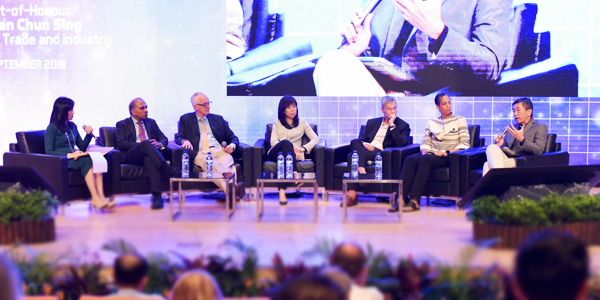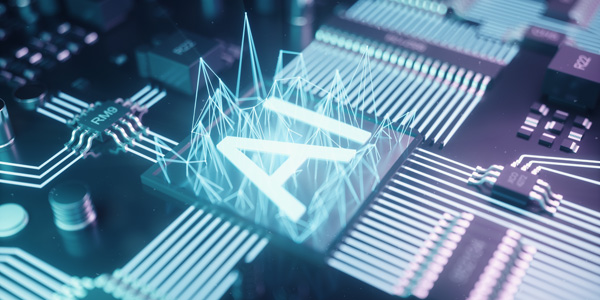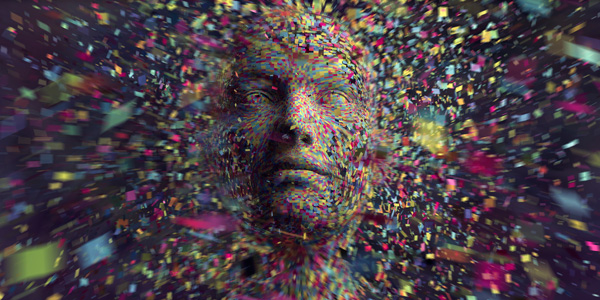INNOVATE
Latest Research/Tech
AI Will Be What We Make Of It
Despite tremendous progress in AI- the technology will only overtake humans if we allow it to- said experts at the 2018 Leaders in Science Forum.

These days- it’s possible to fly directly from Singapore to New York; however- the 18-hour flight—one of the longest in the world—leaves passengers disoriented and jet lagged. Ever mindful of passenger experience- aircraft manufacturer Boeing has turned to artificial intelligence (AI) for a solution.
Planes typically cruise at an altitude of 30-000-40-000 feet- where the air is so thin it affects our ability to breathe. Although most commercial aircraft are pressurised to the equivalent of an altitude of 8-000 feet- this still leads to a reduction of blood oxygen content. Long flights in particular can cause symptoms similar to acute mountain sickness- such as nausea- vomiting and sleep disruption.

Boeing’s latest 777X aircraft- however- can sustain a much higher level of cabin pressurisation- giving passengers a more comfortable ride.
The reason for that is that engineers can constantly monitor the structural integrity of the fuselage with the help of AI. This is an example of how AI can improve the everyday life of citizens in major ways.
Professor Subra Suresh- President of Nanyang Technological University- Singapore
Professor Suresh was speaking at the Leaders in Science Forum- a panel discussion held as part of the one-north Festival that is jointly organised by the Agency for Science- Technology and Research (A*STAR) and JTC- and supported by Science Centre Singapore. Focused this year on the theme ‘AI and I’- the Festival is an annual celebration of research- innovation- creativity and enterprise.
READ MORE ABOUT ONE-NORTH FESTIVAL 2017
Bridging the innovation gap
AI and jobs: a complex picture
Although the panellists were unanimous in their belief in the tremendous potential of AI- they also acknowledged considerable challenges on the horizon with respect to job displacement and ethical concerns. “The fear is real; jobs will be replaced whenever technology revolutions happen. I think it would be naïve for societies to deny that AI would displace or make some jobs irrelevant-” said Mr Poon Joe Keen- Managing Director of Smart City Solutions at Surbana Jurong.

But on the flip side- AI also creates new opportunities. If we can get past the fear [of AI]- and consider how AI could free us to be more human and give us more opportunities to apply ourselves- then I think that fear would diminish.
Ms Jessica Tan- Director (Group Commercial) of Raffles Medical Group and Member of Parliament for East Coast Group Representation Constituency
AI could even change the relative value that society assigns to existing jobs- added Professor Suresh. For example- advances in machine learning mean that radiogram analysis can be done more cheaply and accurately with less effort from doctors; in the future- nurses might be paid better than doctors for providing the more valued human touch.
Keeping humans in the loop
It is in the realm of healthcare- however- that AI raises unique ethical issues- said Professor Huw Price- Academic Director of the Leverhulme Centre for Future of Intelligence at Cambridge University. As machines begin to surpass human accuracy at diagnosing diseases- we might end up delegating medically-important decisions to them.

“If we move down that path- there’s a sense in which we are taking away some of the autonomy and possibly the dignity of the human specialists who make those decisions-” Professor Price said. “Even if we were able to create a machine that embodied an idealised version of our human values- that machine would find itself in many situations where humans will want them to do one thing but it can see from its perspective that the right thing to do is something else.”
The key to preventing such nightmare scenarios- is keeping humans in the loop. We are still very far away from allowing AI to make all our decisions for us.
Professor Simon See- Solution Architecture and Engineering Director and Chief Solution Architect at the NVIDIA AI Technology Centre
“One very good example is the aircraft industry- where technology has advanced to the point where aircraft can land automatically. Yet- we still have a pilot on board because the policy states that we need a human to make the final decision-” Professor See said.
Is AI going to take over and make that terrible decision that is going to kill us all? It all depends on us- how we frame policies and how we shape the technology moving forward.
Professor See
As the example of aviation demonstrates- technology can serve us well when we actively decide when and where it should be used. In the same way- AI can have a tremendous positive impact when humans remain engaged and active participants- the panellists concluded.
Was the article helpful?
A*STAR celebrates International Women's Day

From groundbreaking discoveries to cutting-edge research, our researchers are empowering the next generation of female science, technology, engineering and mathematics (STEM) leaders.
Get inspired by our #WomeninSTEM
